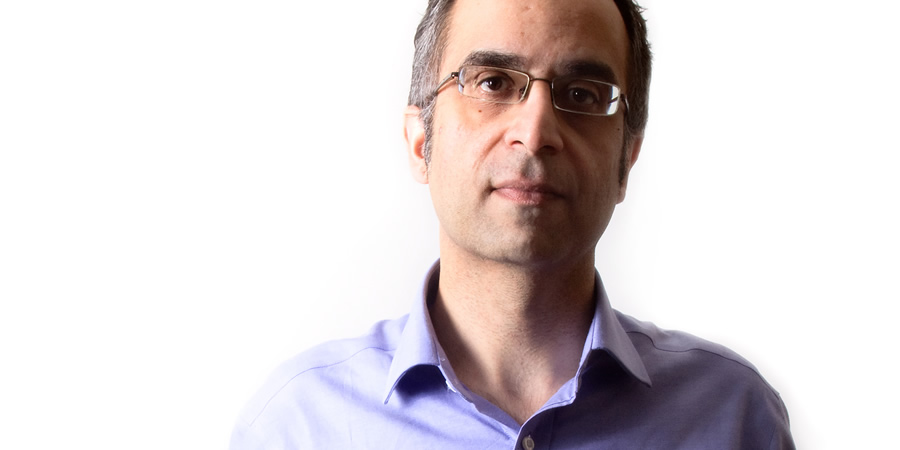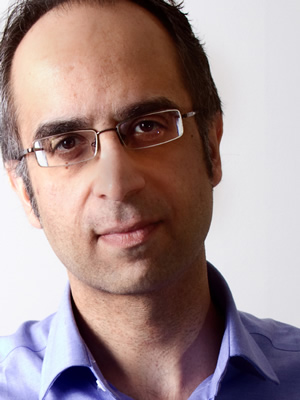Stand-Up Therapy

In my late twenties and early thirties I trained as a psychotherapist. During that time I underwent different kinds of therapy. I experienced both ends of the consulting room, I left, and became a stand-up comedian. Fifteen years after leaving the world of therapy, I realise, in a sense, I never did.
The similarities between doing stand-up and being in therapy are clear enough. We talk about ourselves. We emote. We confess. We might work through issues and undergo a catharsis. However, I have learnt more about the craft of stand-up by dwelling on the art of being a therapist.
When I was a therapist I had to learn, as I do now on stage, how to be in the moment. Comedians tend to be at their best when they play the room, when they are alive to the dynamics of the audience. I do material about being overly politically correct towards Muslims. I sometimes sense the audience's uncertainty about whether it is acceptable to laugh ('in the current climate' I believe is the phrase). Articulating this nervousness intensifies the laughter and enhances our connection.
Potent therapeutic interventions often occur when a therapist verbalises the hidden communications taking place in the room. A client of mine, who had felt traumatised in childhood, told me he wanted to kill his father. I felt an intense queasiness throughout my body. It was not only the nature of the threat that unsettled me; he wanted me to feel something. I suggested he wanted me to experience the intense fear he had felt around his oppressive father. Once I had shared this thought he trusted me to hear about his deepest anxieties and we made progress.
While there is a personal, sometimes powerful, relationship at work with a therapist and a stand-up, it is pseudo-intimate. I have, at times, been captivated by Tommy Tiernan's stories about his life. I have felt moved and thrilled. However, I do not, in any meaningful sense, know him. I saw a psychoanalytic therapist twice a week for five years. Together we unearthed my profoundest hopes and fears. The only significant personal details I knew about him were his physical appearance and the sound of his voice.

But it is precisely the virtual aspect of this relationship which enables us to have intensely felt experiences. Even with the most confessional of comedians like Richard Pryor, a part of us, albeit subconsciously, is aware that we are in a semi-artificial situation. It is a performance. He is trying to entertain us. And it is the artifice as well as the artistry that allows us to revel in, and not be oppressed by, his often stark candour.
Stripped of the context of the 'show', his acting out of his thoughts would be akin to the ramblings of the man on the train with whom you are trying to avoid eye-contact. Similarly in therapy, when this virtualness is breached intimacy turns into invasiveness. One therapist told me spontaneously at our first session that he recognised me from an acting role on television. I felt deeply uncomfortable. He had compromised our relationship by stepping out of his role as my therapist. He had failed to keep his private world out of mine. I felt I could not be open with him.
An effective therapist and a good stand-up understand the power relationships in the room and set clear boundaries. Hecklers and clients will test boundaries partly because they want to be reassured that you are in control. A drunk, verbally incontinent banker at a comedy club wants to know that you can handle him. More often than not he will recede into his pint after a well-judged put-down or three. A ten-year old boy I was counselling, who had grown up with unreliable father-figures, ended a session in a play-pit hurling sand in every direction. I sensed he was testing the boundaries to discover whether I was reliable enough to maintain them. I suggested that the mess he was making with the sand was similar to the messy feelings he had inside. After a moment's thought he asked me if I wanted to help him clear up. He meant this in more than one way.
So much for the craft of both disciplines. But what is the essential link between therapy and stand-up? Here I cannot avoid my experience of being on the other side of the consulting room. I think it is that both are creative acts, both involve producing something out of nothing, and both offer us a sense of tapping into hidden parts of ourselves. When I consider what has given me the greatest satisfaction therapeutically and comedically, it has been those rare occasions when I have broken through the mundane stream of thoughts and words and created something unexpected and of value. Scribbling on my sofa, rewriting a punchline to death, a perfectly formed joke about something half-related will erupt into existence. Sitting in front of my therapist, feeling clueless, the flash of an insight would reveal an important truth.
But what have I been trying to experience in these spaces? I realise now that I have been searching for the same outcome: peace of mind. That seems more obviously true of therapy than comedy, especially when one is playing a hen night in Portsmouth. But on stage, as with personal development, are we not seeking a kind of harmony, a balance between being in control and being open to the unexpected?
It is beautiful to watch a comedian who is in command of his/her material while being able to respond to hecklers with a sideways glance and an ad-lib. In our personal lives, it is enriching to be anchored in a sense of ourselves while accepting the unknown and the unpredictable. Experiencing that balance can induce contentment, a quietening of anxiety, peacefulness. It might last for a few minutes; it might last for an entire show. It might take a decade of therapy and years on the circuit. But it is worth searching for.
Help us publish more great content by becoming a BCG Supporter. You'll be backing our mission to champion, celebrate and promote British comedy in all its forms: past, present and future.
We understand times are tough, but if you believe in the power of laughter we'd be honoured to have you join us. Advertising doesn't cover our costs, so every single donation matters and is put to good use. Thank you.
Love comedy? Find out more
